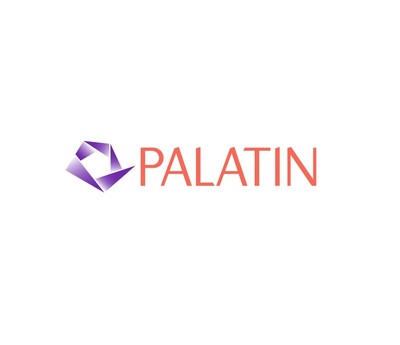Palatin Announces the Initiation of a Phase 2 Clinical Study of Bremelanotide Co-Administered with a PDE5i for the Treatment of Erectile Dysfunction (ED)
Palatin Technologies has initiated a Phase 2 clinical study of bremelanotide (BMT) co-administered with a PDE5 inhibitor (PDE5i) for treating erectile dysfunction (ED) in patients unresponsive to PDE5i monotherapy. With 30-40% of ED patients not responding to current PDE5i treatments, this study aims to address significant unmet medical needs. The trial will involve around 50 patients and assess the safety and efficacy of the combination therapy. Topline data from the study is anticipated by the end of 2024. The study is FDA and IRB approved. Furthermore, a Phase 3 clinical study of a new co-formulated BMT plus PDE5i is expected to start in the first half of 2025. ED affects approximately 30 million men in the U.S., and current PDE5i monotherapy represents over $4 billion in annual sales but is ineffective for a significant portion of patients.
- Initiation of Phase 2 clinical study for BMT plus PDE5i combination therapy.
- FDA and IRB approval for the Phase 2 clinical study.
- Topline data expected by end of 2024.
- Phase 3 clinical study anticipated to start in H1 2025.
- Potential to address unmet medical needs for 30-40% of ED patients non-responsive to PDE5i.
- None.
Insights
The initiation of a Phase 2 clinical study of bremelanotide (BMT) co-administered with a phosphodiesterase 5 inhibitor (PDE5i) for the treatment of erectile dysfunction (ED) is a noteworthy development in the field of urology.
With an estimated
Moreover, FDA approval and Institutional Review Board (IRB) clearance for this Phase 2 study validate the scientific rationale behind the study. Given that ED impacts an estimated 30 million men in the United States, the success of this combination therapy could significantly alter treatment paradigms, making non-responsive patients more receptive to treatment.
In the short term, investors should monitor the study's progress and any preliminary results that could influence stock prices. In the long term, if the combination therapy proves effective, it could disrupt the existing ED treatment market, particularly for companies focusing solely on PDE5i therapies.
Palatin Technologies' initiation of a Phase 2 clinical study targeting a subset of ED patients who do not respond to PDE5i monotherapy has substantial commercial implications. PDE5i drugs like Viagra, Cialis and Levitra generate over
Should the Phase 2 study yield positive results, the subsequent Phase 3 study and eventual FDA approval could open a new revenue stream. This would also enhance Palatin's competitive position in the biopharmaceutical market. Investors should consider the implications of potential market disruption, especially as Palatin plans to develop a co-formulated injection of BMT and PDE5i, adding convenience and potentially higher patient compliance.
In the short term, the commencement of the Phase 2 study might lead to investor optimism and possible stock price appreciation. However, long-term success hinges on the clinical trial outcomes. Investors should be cautious but optimistic, keeping an eye on the clinical milestones and regulatory updates.
The initiation of this study marks an important milestone for Palatin Technologies and the broader ED treatment market. The combination therapy of bremelanotide with a PDE5i addresses an unmet need for approximately
From a market perspective, the potential for a new treatment option is significant, considering the size of the ED market. If successful, Palatin could potentially capture a share of the multi-billion-dollar market currently dominated by PDE5i drugs. The planned Phase 3 study and the new co-formulation could further streamline the treatment process, making it more appealing to both patients and healthcare providers.
Short-term impacts include increased attention and potential stock volatility as clinical trial updates are released. Long-term, a successful launch could lead to substantial revenue growth and market share acquisition. Investors should remain aware of the competitive landscape and any developments from other companies that may also be targeting this unmet medical need.
- In ED patients that do not respond to PDE5i monotherapy
- ~30
-40% of ED patients do not respond to PDE5i treatment
- ~30
- Data from this Phase 2 clinical study is expected by end of calendar year 2024
- Published clinical data and mechanisms of action support clinical study of bremelanotide in combination with a PDE5i
- Phase 3 clinical study with new co-formulated bremelanotide plus a PDE5i in ED patients that do not respond to PDE5i monotherapy expected to start in the 1st half of calendar year 2025
"Approximately 30
The Phase 2 clinical trial is designed to enroll approximately 50 patients to be treated with BMT co-administered with a PDE5i in an open-label, dose escalation study treating men with ED who are considered non-responders to PDE5i monotherapy treatment. The clinical study is being conducted under an investigator-sponsored Investigational New Drug (IND) and has Food and Drug Administration (FDA) clearance and Institutional Review Board (IRB) approval. The study's primary objective is to assess the safety and efficacy of BMT co-administered with a PDE5i for the treatment of ED in males who have not adequately responded to prior PDE5i monotherapy.
"ED has become more prominent over the last several decades, especially in younger adults, and represents a mounting health concern causing a significant effect on men's quality of life," said Jed Kaminetsky, MD, FACS, Urologist, Director of Research, Integrated Medical Professionals, a Division of Solaris Health and the clinical study lead investigator. "Many patients in my practice are seeking better results from their ED treatment. Men with more severe ED do not respond as well using a PDE5i and have limited non-surgical options. I have used bremelanotide in my practice for men with ED. I believe the combination of bremelanotide with a PDE5i could potentially be an effective treatment option for the PDE5i non-responders suffering from ED."
Palatin has conducted multiple clinical studies of monotherapy BMT and combination therapy BMT plus a PDE5i in men with ED and observed statistically significant and clinically meaningful effects on improving erectile function. In addition, sub-cutaneous bremelanotide 1.75 mg (Vyleesi®) is approved by the FDA for the treatment of hypoactive sexual desire disorder (HSDD) in pre-menopausal women and has demonstrated an increase in sexual desire and decrease in distress associated with low desire.
Palatin has developed a new co-formulation of bremelanotide and a PDE5i which can be administered as a single injection. An IND for this novel co-formulation for the treatment of ED is expected to be filed with the FDA later this calendar year and a potential Phase 3 clinical study in ED patients who do not respond to PDE5i monotherapy is expected to start in the first half of calendar year 2025.
About Erectile Dysfunction (ED)
Erectile dysfunction is the consistent inability to attain and maintain an erection sufficient for sexual intercourse and affects an estimated 30 million men in
About Palatin
Palatin is a biopharmaceutical company developing first-in-class medicines based on molecules that modulate the activity of the melanocortin receptor systems, with targeted, receptor-specific product candidates for the treatment of diseases with significant unmet medical need and commercial potential. Palatin's strategy is to develop products and then form marketing collaborations with industry leaders to maximize their commercial potential. To learn more about Palatin, please visit us on www.Palatin.com and follow us on Twitter at @PalatinTech.
Forward-looking Statements
Statements in this press release that are not historical facts, including statements about future expectations of Palatin Technologies, Inc., such as statements about Palatin products in development, clinical trial results, potential actions by regulatory agencies including the FDA, regulatory plans, development programs, proposed indications for product candidates, and market potential for product candidates are "forward-looking statements" within the meaning of Section 27A of the Securities Act of 1933, Section 21E of the Securities Exchange Act of 1934 and as that term is defined in the Private Securities Litigation Reform Act of 1995. Palatin intends that such forward-looking statements be subject to the safe harbors created thereby. Such forward-looking statements involve known and unknown risks, uncertainties and other factors that could cause Palatin's actual results to be materially different from its historical results or from any results expressed or implied by such forward-looking statements. Palatin's actual results may differ materially from those discussed in the forward-looking statements for reasons including, but not limited to, results of clinical trials, regulatory actions by the FDA and other regulatory agencies and the need for regulatory approvals, Palatin's ability to fund development of its technology and establish and successfully complete clinical trials, the length of time and cost required to complete clinical trials and submit applications for regulatory approvals, products developed by competing pharmaceutical, biopharmaceutical and biotechnology companies, commercial acceptance of Palatin's products, and other factors discussed in Palatin's periodic filings with the Securities and Exchange Commission. Palatin is not responsible for updating events that occur after the date of this press release.
Palatin Technologies® is a registered trademark of Palatin Technologies, Inc.
![]() View original content to download multimedia:https://www.prnewswire.com/news-releases/palatin-announces-the-initiation-of-a-phase-2-clinical-study-of-bremelanotide-co-administered-with-a-pde5i-for-the-treatment-of-erectile-dysfunction-ed-302177672.html
View original content to download multimedia:https://www.prnewswire.com/news-releases/palatin-announces-the-initiation-of-a-phase-2-clinical-study-of-bremelanotide-co-administered-with-a-pde5i-for-the-treatment-of-erectile-dysfunction-ed-302177672.html
SOURCE Palatin Technologies, Inc.








